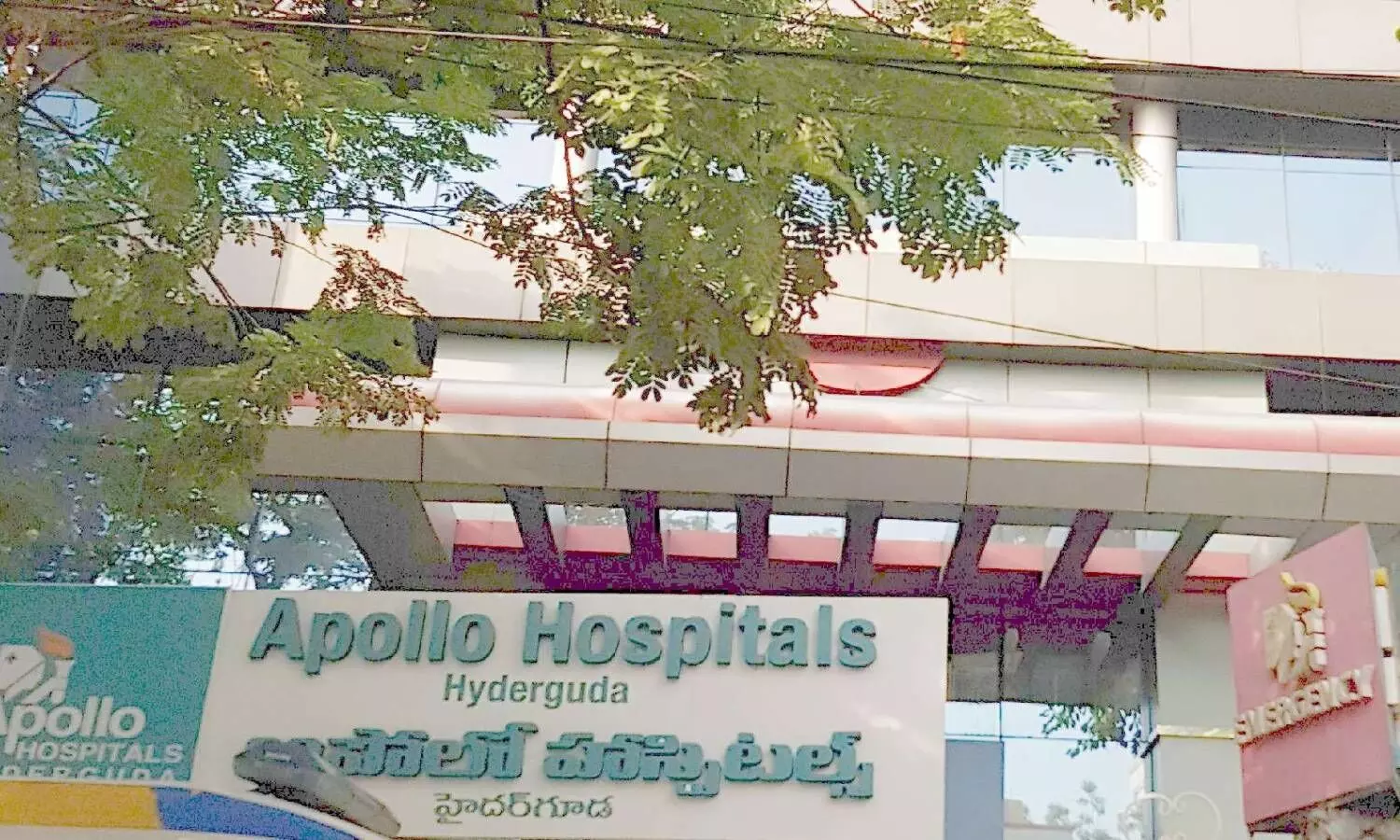Hyderguda Apollo Hospital directed to pay Rs. 1 lakh to family for patient's death
The District Consumer Dispute Redressal Commission has directed Apollo Hospital, Hyderguda, to pay a compensation of Rs. 1 lakh to the family of a patient who died allegedly due to the hospital's negligence.
By Sumit Jha
Hyderabad: The District Consumer Dispute Redressal Commission has directed Apollo Hospital, Hyderguda, to pay a compensation of Rs. 1 lakh to the family of a patient who died allegedly due to the hospital's negligence. Sudershan Matmari, a resident of Himayatnagr, was suffering from Hepatocellular Carcinoma (liver cancer). In October 2014, he approached the Apollo Hospital in Hyderguda for consultation after suddenly experiencing pain. He was admitted to the hospital after a week.
What the complainant says
It is alleged that the patient was not given the necessary treatment and was given excessive diuretics which led to renal failure. The patient suffered from nausea and vomiting after he was discharged and was again admitted to the hospital. It is stated that though the patient was getting treatment from an oncologist at the Indo-American Hospital, he was brought to Apollo as the Indo-American Hospital was far.
It is alleged that the Apollo doctor behaved in a negligent way, postponed the endoscopy, and kept the patient in ICU. The doctor who claimed to be an expert in gastroenterology knew that the main source of bleeding was esophageal varices and the treatment for the same was endoscopy and endoscopy banding. It is alleged that the patient's family repeatedly requested doing the endoscopy but the doctor postponed the treatment and eventually, the patient lost his life. The family alleged that even though the hospital did not have an expert oncologist, it did not refer the patient to a proper facility. It is further submitted that admitting the patient suffering from liver cancer without providing an oncologist and without rendering necessary treatment not only amounts to the adoption of unfair trade practices but also amounts to the commission of deficiency in service.
What the hospital says
The hospital, in its submission, said that endoscopy was done in another hospital and no banding was done there at that time. The failing condition of the patient and the multiple comorbidities associated with the disease had been explained to the patient and his attendants in detail. The prescribed medication was only intended to provide comfort and symptomatic relief to the patient who was in the advanced stage of liver cancer.
"An attempt to perform immediate endoscopy was not made in view of the high risk involved and the risks highly outweighed the benefits as the patient was in a poor condition. If such invasive procedures were attempted, they would have resulted in an on-table death or would have further worsened the bleeding of the patient as the patient had fluctuating vitals," said the hospital.
Verdict
Hearing the argument, the state commission said the procedures which are specific for the treatment of liver cancer were not done till the last day. "It is clear from the case papers submitted by the hospital that the endoscopy was mentioned only on the case paper a day before the patient died with a note that said "endoscopy to be done tomorrow." The said statement clearly contradicts the stand taken by the hospital that the patient was not in a position to receive the procedure," observed the commission. The commission also observed that the patient consulted the hospital in October in a conscious state but instead of providing necessary treatment, he was discharged after keeping him in the hospital for some days. It further said that a doctor who was not specialised in treating liver cancer had treated the patient.
Endoscopy was mandatory for both diagnosis and definitive treatment. The commission further said that it is also established from the cross-examination of the hospital doctor that the Hyderguda branch of the hospital did not have an oncologist while the Jubilee Hills branch had one. This clearly shows that the hospital violated the rule with regard to the duty of care in deciding whether to undertake the case when the branch was not equipped with an oncologist. The commission asked the hospital to pay Rs. 1 lakh as compensation and Rs. 15,000 for the cost of litigation.